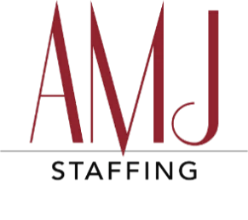
In 2016, 69.7% of high school graduates enrolled in college while those entering the Skilled Trades field has diminished greatly. Presently, there is a huge deficit of Skilled Trades workers. More and more high school graduates are being pushed to go into a career path that require a college degree. For many young students, they feel it is necessary to incur, at times, tens of thousands of dollars of debt to get a degree for a position that might not even be the right fit for them. Currently, there is a stigma that you’re not going to find a career that’s well-paying without a college degree or that blue collar jobs are less paying overall. These are complete myths and there are many misconceptions about going into the Skilled Trades. Here are some reasons why a profession in the Skilled Trades may be the right decision for you.
As previously mentioned, there’s a huge demand for workers in the Skilled Trades. As of 2019, “job vacancies in industrial, electrical and construction trades were up 51% compared to four years earlier, and 78% for maintenance and equipment operation trades.” In Michigan alone, there will be an “estimated 47,000 openings annually between 2019 and 2026 in the professional trades.” Due to this stigma of working in the Skilled Trades and with more and more baby boomers retiring, there is a huge opening for workers.
Additionally, there’s great earning potential. Electricians and Plumbers on average make just north of $50,000 while other trades can far exceed those numbers for example some Underwater Welders make around $80,000. And, for some vocations, specific certifications can boost earnings by tens of thousands like obtaining a Journeyman’s license if you are an electrician or a millwright. Not to mention many of these positions in the Skilled Trades offer ample overtime that also increase overall pay. The myth that the Skilled Trades have low salaries is completely untrue. With experience and the right education, the earning potential is excellent.
Moreover, you can delve into experience right away. Some people aren’t the best test-takers or don’t particularly thrive in a classroom setting. With Skilled Trades, most of the learning is on the job. This can be an advantage for those who are more hands-on learners and prefer to do rather than to observe. In doing this, individuals can bring their work to life and make the most of their newly found skills.
It also takes about half the time to get certain certifications. Rather than taking the time to obtain a four-year bachelor’s degree, many Skilled Trades programs can have you trained quickly and out into the workforce. Depending on the vocation chosen, some individuals may be out earning in the field after only two years, some even 8 months!
Also, there is major job security in the Skilled Trades field. Whereas some jobs can be shipped away to other countries, many Skilled Trades jobs require hands-on work that can’t be outsourced. Without the Skilled Trades, our society would quite literally fall apart as infrastructure needs upkeep and machines need tweaking. There will always be a need for Skilled Trades.
As of 2020, trade programs are the hardest to fill around world. With 62% of organizations struggling to fill positions, the top ten hardest trade vocations to fill are “Carpenters, Framers, Bricklayers/Masons, Concrete Workers, Drywallers, Roofers, Electricians, Plumbers, Painters and Excavators,” with more and more positions opening up seemingly every day. As long as more baby boomers retire and young professionals decide to work outside of these vocational fields, there will remain a deficit that the United States desperately needs to fill, approximately 31 million jobs by the end of 2020. If you have any questions about the Skilled Trades field, please reach out to us at AMJ.
Sources:
https://www.macleans.ca/work/10-reasons-to-consider-a-career-in-skilled-trades/
https://www.kaempfandharris.com/industry-news/6-reasons-you-should-consider-a-skilled-trade-career
https://blog.prepscholar.com/what-is-a-trade-school
https://www.inc.com/christina-desmarais/heres-why-your-kid-should-go-into-trades.html
https://www.adeccousa.com/employers/resources/skilled-trades-in-demand/
